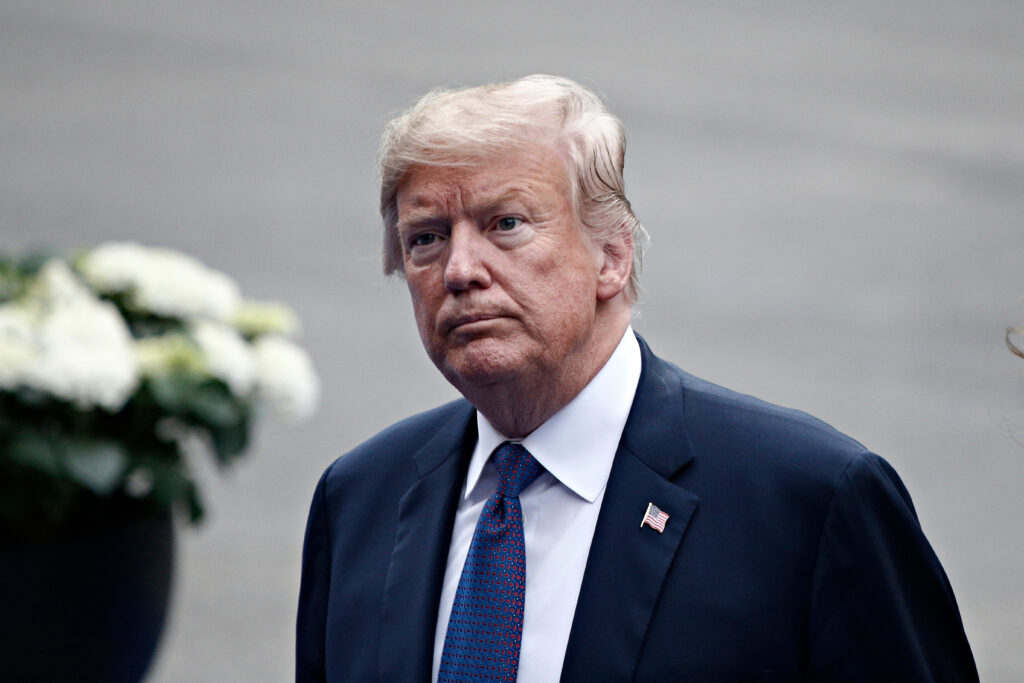Former U.S. President Donald Trump has signed an executive order enforcing reciprocal tariffs on trade partners and global rivals. The move aims to eliminate trade imbalances by matching the tax rates that other countries impose on American goods. Trump insists the measure promotes fair competition, though experts warn of rising costs and economic risks.
Speaking from the Oval Office, Trump declared, “It’s fair to all. No other country can complain.” The order directs U.S. trade officials to assess the tariff policies of foreign nations and apply equivalent taxes on their exports to the United States.
Concerns Over Economic Impact and Rising Prices
While Trump’s administration argues the tariffs will protect American businesses and workers, economists warn that they could lead to higher consumer prices and slower economic growth.
Scott Lincicome, a trade policy expert at the Cato Institute, criticized the move, calling it a “misguided strategy” that could trigger unintended consequences. “Reciprocal tariffs may sound fair, but in reality, they often mean higher costs for American companies that rely on imported materials,” Lincicome explained. “Ultimately, those costs get passed on to consumers.”
The executive order focuses on foreign tariff rates, value-added tax (VAT) systems, and government subsidies that put U.S. exports at a disadvantage. The White House claims the revenue generated from these tariffs could help offset the country’s projected $1.9 trillion budget deficit. However, analysts question whether these funds will be sufficient to cover the broader economic impact.
Escalating Global Trade Tensions
Trump’s tariff strategy follows previous measures targeting Canada, Mexico, and China. While some tariffs have been suspended for 30 days in exchange for security and trade commitments, tensions remain high.
The European Union, Canada, and Mexico have already announced countermeasures, preparing tariffs on American goods. China has also responded by imposing duties on U.S. energy products, machinery, and automobile exports.
A senior European Commission official said, “The EU will not hesitate to protect its economic interests. If the U.S. insists on these measures, we will respond proportionally.”
Meanwhile, China’s Ministry of Commerce called the order “an act of economic aggression” and signaled further retaliation. “The U.S. is disrupting global trade stability, and we will take all necessary actions to defend our industries,” a spokesperson stated.
Inflation Concerns and Political Reactions
Despite concerns over inflation, Trump dismissed fears that his policy would negatively affect the economy. “There might be a brief bump in prices, but nothing major. American businesses will adjust, and we’ll be stronger in the long run,” he stated.
However, critics argue that imposing new tariffs could have ripple effects across various industries. Economists warn that higher import costs could drive inflation, hurting consumers already dealing with economic uncertainty.
Democratic lawmakers voiced strong opposition to the move. Senate Finance Committee Chair Ron Wyden called the executive order “reckless and shortsighted.” He added, “Raising tariffs without a comprehensive trade strategy will hurt small businesses and middle-class Americans the most.”
Conversely, some Republican lawmakers backed the decision, framing it as a necessary step to push trading partners into fairer agreements. “Other nations have taken advantage of America for too long. We must level the playing field,” said Senator Josh Hawley.
Potential Consequences for American Businesses
Business leaders and trade groups are bracing for potential disruptions. The National Retail Federation (NRF) criticized the move, stating that it would “increase costs for businesses and consumers without solving the underlying trade challenges.”
Small and medium-sized manufacturers, many of which rely on imported materials, could be particularly affected. “We need stable trade policies, not unpredictable tariffs that raise our costs overnight,” said Linda Dempsey, vice president of the National Association of Manufacturers.
The agriculture sector is also on edge, as previous trade disputes under Trump’s administration led to retaliatory tariffs on U.S. farm exports. The American Soybean Association warned that new tariffs could once again put farmers at risk. “We’ve seen this before, and we know how it ends: American farmers take the hit,” said a spokesperson for the group.
The Future of U.S. Trade Policy
As the 2024 election approaches, trade policy remains a major topic of debate. Trump’s decision to implement reciprocal tariffs aligns with his long-standing “America First” economic stance. If re-elected, he is expected to push further protectionist policies, potentially increasing global trade uncertainty.
Meanwhile, international trade negotiations could determine the long-term impact of these tariffs. While the Biden administration has pursued a different approach to trade, reversing Trump’s policies entirely may prove difficult due to geopolitical shifts and ongoing economic competition with China.
The full effects of this executive order remain uncertain, but global markets are already reacting. Analysts predict that continued trade tensions could lead to stock market volatility and supply chain disruptions.
For more updates on U.S. trade policy and its impact on global markets, visit Newyork Mirror.


